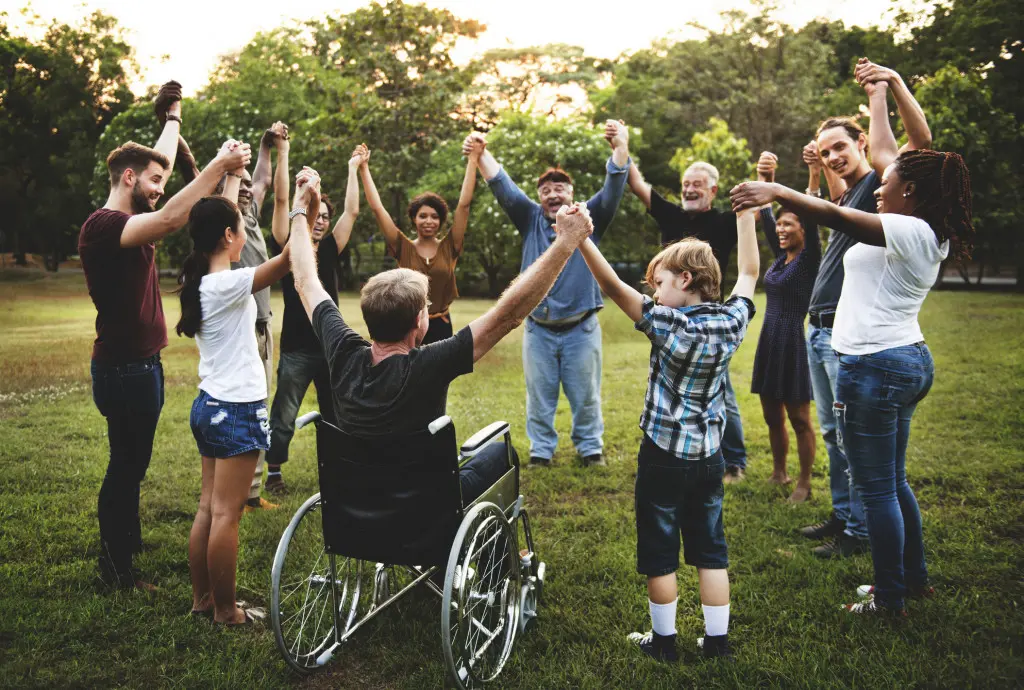The first Italian Disability Agenda , promoted by Fondazione CRT and Consulta per le persone in Difficoltà (Council for People in Need), is now available: more than 150 ideas for a future for all.
It is a model for participatory inclusion, the result of a long process of listening and co-planning that started in 2021 and lasted about a year, involving about 300 subjects, including non-profit organisations and civil society proponents.
The document, which sees disability as an opportunity and a resource, takes up the challenge of “Leave no one behind” of the UN 2030 Agenda for Sustainable Development and is in line with the goals of the European Strategy on the rights of people with disabilities.
The Agenda is based on six strategic themes: social housing, supporting families, living in the territory, working and growing, learning in and out of school, caring and healing. Based on these goals, concrete lines of action have been defined to improve the inclusion of people with disabilities.
There are more than 3 million people with disabilities in Italy (5.14% of the population), of which about 225,000 are in Piedmont and Aosta Valley (ISTAT data 2019).
The Agenda was launched on 3rd December 2021 with a conference at the OGR in Turin as part of the International Day of Persons with Disabilities.
THE ON-LINE PLATFORM
www.agendoperlagenda.it is an open platform in which everyone can participate – associations, institutions, intermediate bodies, individual citizens also from other territories – in accordance with the principle of subsidiarity.
In 2022, the platform will be the place where the most innovative projects currently emerging on the theme of disability and fragility will be collected and also explained through interviews with those who made them.
A large cloud where you can participate in online meetings, talks and forums that will be proposed continuously throughout the year and whose main purpose will be to continue working on the themes of the Agenda and to support the creation of a new network between associations and the civil world.
Citizens and stakeholders can thus become part of the virtual community to learn about the partial results achieved by NPOs, interact with them by suggesting comments, additions and in-depth study material, network with all the stakeholders registered on the platform and participate in public events.
THE AGENDA IDEAS
The proposals summarised in the 90-page Agenda cover the various aspects of daily life and the different phases of everyone’s existence.
The role of communities and the relationships between people, NPOs, public services and civil society are cross-cutting. In these networks, new impulses and concrete ideas have emerged for living, supporting families, enjoying the possibilities of the territory, taking the best care of one’s health, learning and training, working and being actors in the productive and service fabric.
This ranges from project ideas aimed at urban regeneration with all citizens in mind, including the most vulnerable (e.g. fundraising campaigns – crowdfunding and fundraising – are proposed to transform abandoned public spaces into meeting places, ad hoc training courses for architecture and engineering students aimed at “imagining” co-housing spaces suitable for all).
Ideas that rethink built space and the environment in terms of universal design, identifying proposals and actions to make culture, sport and leisure more accessible (from social smart boxes dedicated to accessible tourism to assistive devices such as easy-to-read texts to enjoy exhibitions).
There is a strong focus on families, with the implementation of information, accompaniment and support measures in everyday life and in emergencies (e.g. through “antennas” and counters distributed throughout the territory, the promotion of “peer” support mechanisms to expand the possibility of people with disabilities, including those with financial difficulties, to use the opportunities in the area).
Many project ideas focused on education (with training modules on the disability condition that can be included in annual school curricula, training courses for school staff, promoting mobility projects abroad, such as Erasmus, for students with disabilities, initiatives to tackle fake news about disability) and on new strategies to enable people to enter and remain in the world of work in an appropriate way, through the help and support of both people and companies, with a view to self-entrepreneurship as well (e.g. by introducing mediators and disability managers in the workplace, starting collaborations on disability with vocational training centres, mapping opportunities for training while studying, speed networking events – a meeting format designed to speed up business contacts and exchange information between employers – and developing digital platforms to promote the exchange of information and knowledge about the self-employment experiences of people with disabilities).
And then there is healthcare, with projects to support and accompany people with disabilities and their families, especially in hospitals, and to make specialist clinics truly accessible so that they can welcome people with different disabilities (for example, by introducing the figure of healthcare mediator and training credits on disability for healthcare workers). In short, removing all barriers that limit access to diagnosis, treatment, rehabilitation and prevention. This commitment to inclusion is to be recognised through a system of labels to be awarded to activities, services and places that are suitable for all.


